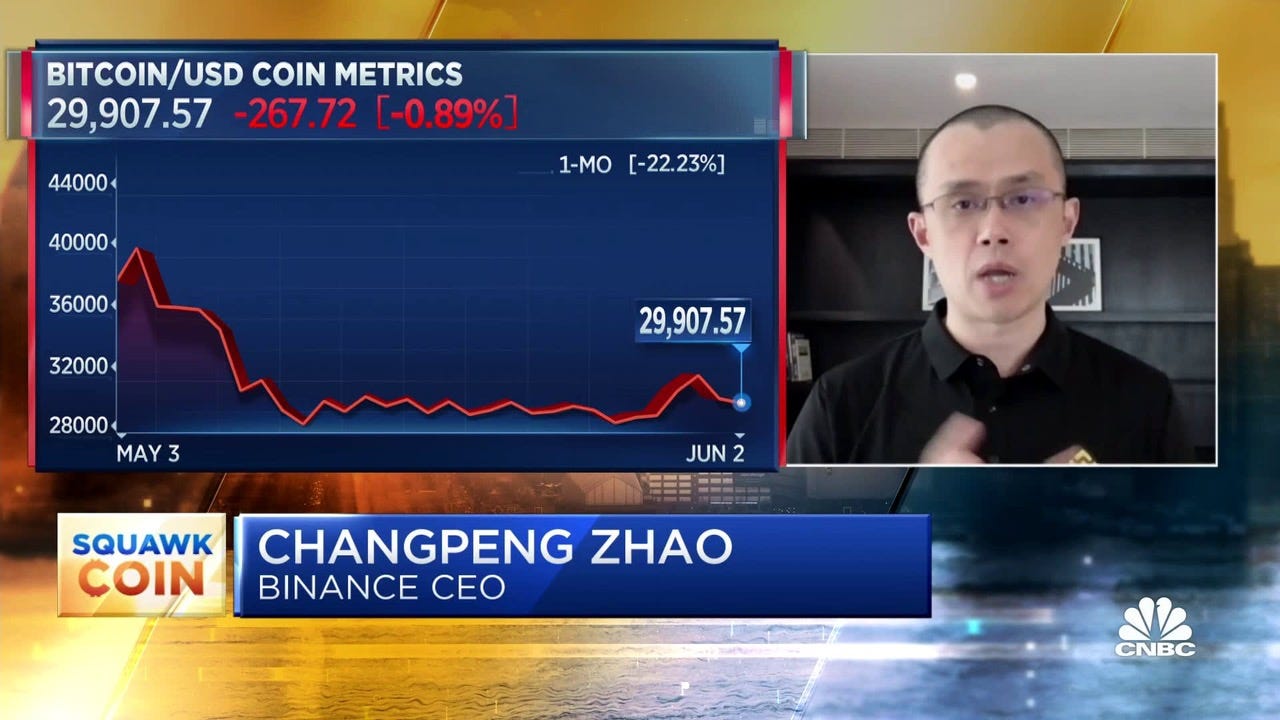Price Discoveries
“My goal is to have impact.” – Sam Bankman-Fried
The spectacular implosion of Sam Bankman-Fried’s (SBF) Empire of Fraud™ catalyzed a new crypto winter, with storms of contagion splashing against digital shores the world over, sparing few of the industry’s prior titans. Among those still standing, the primary beneficiary of SBF’s collapse has been the shady offshore crypto exchange Binance, led by its elusive founder, Changpeng Zhao (CZ). As the largest crypto exchange still in operation, Binance has soaked up virtually all global Bitcoin trading volume. We turn to a recent CoinDesk report for the remarkable details (emphasis added throughout):
“Binance’s market share of bitcoin (BTC) trading volume rose to 92% by the end of 2022, according to Arcane Research.
The exchange’s market share was just 45% at the start of last year, but the elimination of trading fees in June, not to mention the collapse of rival FTX in November, served to push users to Binance, which is the world's largest crypto exchange by trading volume.
‘No matter how you look at it in terms of trading activity, Binance is the crypto market,’ Arcane wrote.”
SBF’s descent from on high was particularly embarrassing for the Commodity Futures Trading Commission (CFTC), the regulatory body that held at least 10 meetings with the man in his heyday. To crypto enthusiasts, the CFTC has long been considered the “good” regulator. In contrast to Gary Gensler’s Securities and Exchange Commission (SEC), the CFTC worked with the crypto community to create a clear framework for the establishment of futures trading in digital assets, most notably in Bitcoin. CFTC representatives also routinely insisted in various court filings and public pronouncements that Ether be treated as a commodity and not a security, a position that stood in direct contradiction to that held by the SEC.
Last week, the CFTC dropped a 74-page bomb on CZ and his Binance empire, shattering any doubts about the pre-meditated coordination of Operation Choke Point 2.0 across the alphabet soup of Federal agencies cracking down on the sector. The complaint also exposes the dwindling number of allies the crypto movement has retained in Washington, DC. Although the complaint is a civil enforcement action, it reads like a Department of Justice (DOJ) criminal indictment. This is from the CFTC’s press release announcing its move:
“The Commodity Futures Trading Commission today announced it has filed a civil enforcement action in the U.S. District Court for the Northern District of Illinois charging Changpeng Zhao and three entities that operate the Binance platform with numerous violations of the Commodity Exchange Act (CEA) and CFTC regulations. The complaint also charges Samuel Lim, Binance’s former chief compliance officer, with aiding and abetting Binance’s violations.
The complaint charges that Binance Holdings Limited, Binance Holdings (IE) Limited, and Binance (Services) Holdings Limited (together, Binance) operate the Binance centralized digital asset trading platform along with numerous other corporate vehicles through an intentionally opaque common enterprise, with Zhao at the helm as Binance’s owner and chief executive officer. The defendants allegedly chose to knowingly disregard applicable provisions of the CEA while engaging in a calculated strategy of regulatory arbitrage to their commercial benefit.”
The depth and breadth of information gathered by the CFTC imply strongly that the authorities (1) have numerous collaborating witnesses, including some key insiders; (2) have been investigating this case for quite some time, perhaps years; (3) are under no illusion as to what is transpiring on the Binance exchange; and (4) are intent on putting CZ in jail and Binance out of business. We expect arrests will be forthcoming.
While the lurid (and sometimes comical) details sprinkled throughout the document make for an entertaining read, they also represent the growing potential for profound consequences on the future price of Bitcoin – a construct we have questioned on several occasions. The details unearthed by the CFTC should unsettle even the most hardcore Bitcoin maximalists. Let’s step into the minefield.



